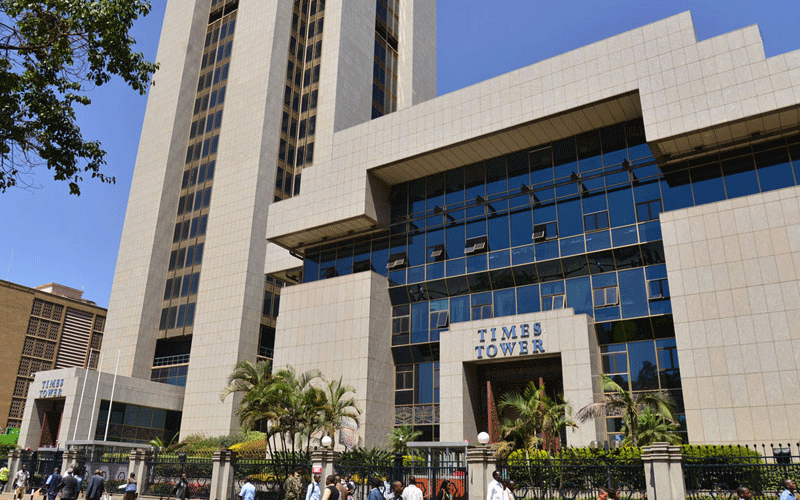Reform tax systems to hit revenue targets, KRA told
By Steve Umidha, November 25, 2020Steve Umidha and Noel Wandera
Kenya Revenue Authority (KRA) has been challenged to reform its tax systems in the wake of the unprecedented coronavirus crisis, if it is to improve compliance and meet its annual targets.
The taxman missed its target by Sh350 billion, the highest in five years that saw the government net Sh1.43 trillion in taxes in the last financial year against an initial target of Sh1.8 trillion the National Treasury had set for it.
With the negative effects of Covid-19 still raging, tax collection is expected to be hit even harder in the current financial year.
The National Treasury says in its latest quarterly economic and budgetary review report that KRA missed its first quarter collection target by Sh50.2 billion.
As of September 2020, it adds, total revenue collected, including Appropriation in Aid (A-I-A) amounted to Sh378.7 billion against a target of Sh428.9 billion.
The report explains that revenue was below target mainly due to underperformance in value added taxes (domestic and imports), Pay As You Earn (PAYE) excise duty, ministerial A-I-A and import duty.
In the period under review, ordinary revenue also fell below the target by Sh41.7 billion, with the taxman collecting Sh342.6 billion against a projection of Sh384.3 billion.
The report by the Finance ministry attributed the contraction in collections to the difficult operating environment due to the Covid-19 pandemic, which has been adversely affecting revenue performance from March this year.
Now a new report by a tax advocacy group wants the taxman to tighten and reprogramme its systems if the worrying trend of missing revenue targets is to improve.
The Tax Justice Network (TJN) report says that in undertaking these reforms the taxman needs to ensure that raising of additional tax revenues must be progressive.
“Where the pandemic itself has actively exacerbated inequalities, the response must mitigate these by ensuring that those most able to contribute more, do so – and that ultimately we build back better, rather than replicating the gross inequalities that currently characterise our societies,” the just report released report reads in part.
The TJN’s state of tax justice 2020 report has also recommended a clear-cut consideration to companies particularly those operating virtually and individuals hit hard by the pandemic with most of them having had to close shop in totality.
Difficult times
Additional tax revenues, it adds, should be raised above all from those who are profiting most in these difficult times, not from their own ingenuity or hard work but from sheer luck that enables them to benefit from the unprecedented state interventions in the economy.
“Enormous, unearned profits are accruing to the owners of businesses like Amazon, purely because most of their physical competition has been closed by order,” commented Clifford Omondi, a Kenyan tax expert.
He also called for a thorough check into operations of the informal sector which has been accused of tax evasion.
KRA’s fiscal deficit – which is the difference between a country’s spending and tax revenues was the deepest budget hole since June 2017 when the government borrowed Sh788 billion to finance mega infrastructural projects, including SGR and is expected to push the country’s total debt to around Sh6.7 trillion.
Negative effects of Covid-19 is expected to further hamper tax collection in the current financial year with the budget deficit also expected to widen in the current fiscal year.
This will compe at a time the national government will borrow Sh840 billion in the 12 months to June 2021 to run its projects including payment of salaries and wages to its public servants.
Lack of modern and well-understood tax policies has also been blamed for continuing trend in which wealthy and corrupt individuals as well as big companies are using the system to avoid paying their share of taxes to the tax agency
The African tax advocacy group also wants a longer-term agenda to reprogramme the global tax system to include the potential for wealth taxes and much more effective capital gains taxes in relation to offshore assets and income streams.
